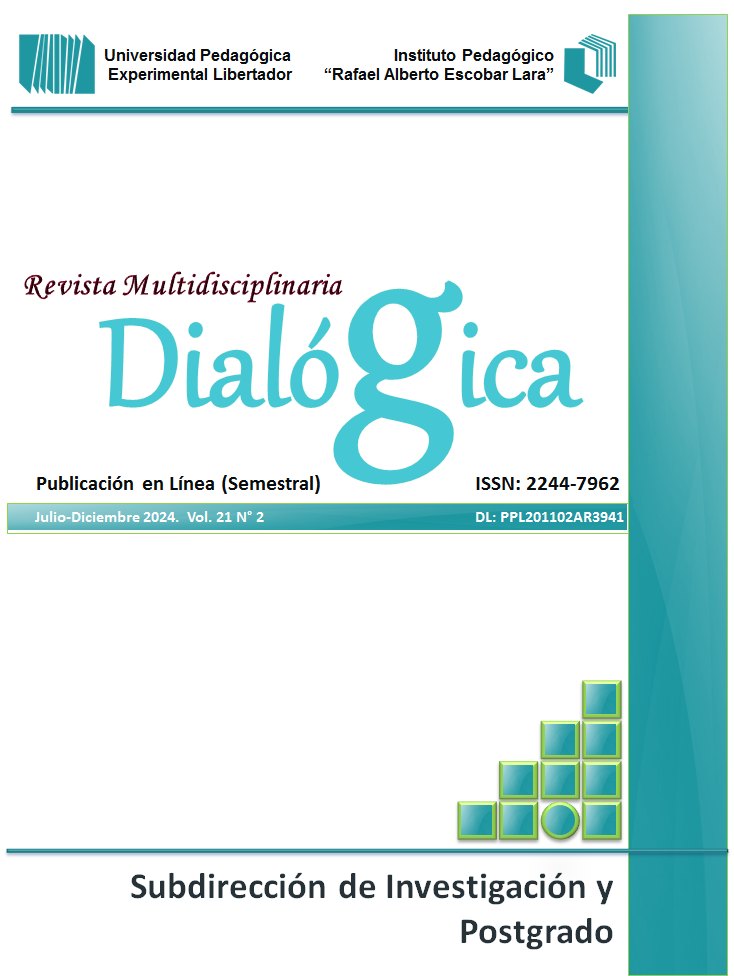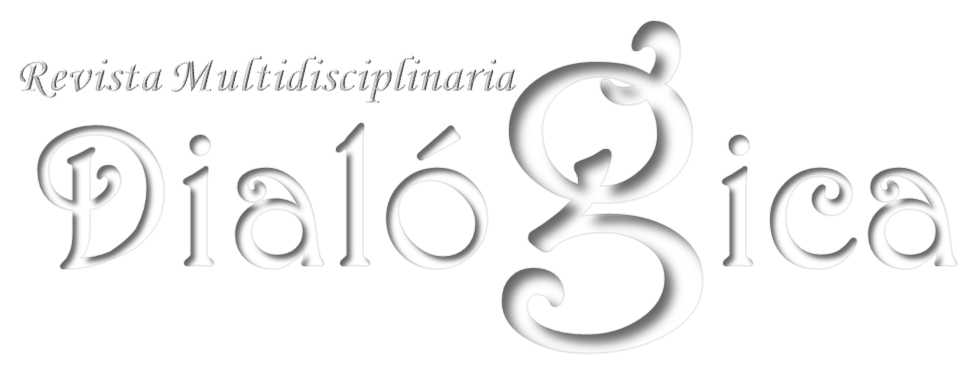STRUCTURING AN ECOLOGICAL ROUTE AS A PEDAGOGICAL TOOL IN A TEACHER TRAINING UNIVERSITY
DOI:
https://doi.org/10.56219/dialgica.v21i2.3296Keywords:
Ecology, path, pedagogy, contemplation, natureAbstract
The Ecological Route is a structure of a natural or semi-natural area, modified or not, used as a pedagogical tool. UPEL-IPMAR is a teacher training university in Venezuela, which has privileged natural areas, and its non-use represents a problem. Given this need, the development of an ecological path in the form of a Route is proposed that will increase the pedagogical use of the spaces. Methodologically, this work has a qualitative approach. A group of teachers from the university community was taken as the population: four teachers from the Biology Specialty, one Initial and one from Social Sciences. The information was obtained through a survey with open and closed responses. As a result, an ecological route was established made up of six stations with their main plant species duly identified and it was concluded that the participants have a repertoire of logical-scientific knowledge that comes from their daily sensory experiences on the hiking routes.
References
Ahumada-Figueroa, L.; Pino, M.; Galdames, S. y González, A. (2016). Marco para el liderazgo sistémico y el aprendizaje en Red: Los desafíos de la colaboración en Contextos de competencia. . [Informe técnico en Línea], Lideres educativos, Centro para el desarrollo escolar. http://www.lidereseducativos.cl/wp-content/uploads/2016/12/IT-2.pdf
Bertalanffy, L. (1968). General System theory: Foundations, Development, Applications, New York.
Destino Australia. (2017). http://www.destinoaustralia.com.mx/eventos-y-noticias/noticias/188-australia-es-lider-en-estudios-ambientales-y-ecologia
Diaz, D. (2012). Venezuela aporta 9% de la biodiversidad del mundo. Revista Vitalis, https://vitalis.net/actualidad-ambiental/venezuela-aporta-9-de-la-biodiversidad-del-mundo/
Ecocentro Danaus. (2017). http://www.ecocentrodanaus.com/
Grupo de trabajo del Proyecto “Quédate”. (2012) Estrategias y metodologías pedagógicas, Universidad Francisco de Paula Santander, Cúcuta, Colombia. file:///C:/Users/Usuario/Downloads/110_2013%20(1).pdf
Martínez, M. (2005) Actualización de la epistemología y metodología en educación. III Jornadas de Innovación Educativa, Barquisimeto – Edo. Lara, 30 Nov - 02 Dic 2005. http://dip.una.edu.ve/mae/978investigacioneducativa/paginas/Lecturas
Palella, S. y Martins, F. (2010), Metodología de la Investigación Cualitativa. Caracas: Fondo Editorial de la UPEL
Parque de la Exótica Flora Tropical Nuestra Señora del Carmen. (2017). http://www.hotelantiguamision.com.ve/instalaciones/el-parque/
RAE (2023). Diccionario de la Lengua Española. https://dle.rae.es/sistema
Romero, N. (2014) La naturaleza compleja aportes para el discurso educativo ambiental [Tesis doctoral, Universidad Pedagógica Experimental Libertador, Maracay]
Sampieri, H. (2006), Metodología de la investigación cuarta edición, McGraw-Hill interamericana. https://competenciashg.files.wordpress.com/2012/10/sampieri-et-al-metodologia-de-la-investigacion-4ta-edicion-sampieri-2006_ocr.pdf
Serpa y Falcón (2015). La formación de conceptos: una comparación entre los enfoques cognitivista e histórico-cultural Revista Educ. Pesqui., São Paulo, v. 41, n. 3, p. 615-628, jul/set. 2015. DOI: https://doi.org/10.1590/S1517-9702201507135042
Villar, F. (1998) Psicología cognitiva y procesamiento de la información, Universidad de Barcelona,España.http://www.ub.edu/dppsed/fvillar/principal/pdf/proyecto/cap_06_proc_info.pdf
Vygotsky, L. S. (1978). Mind in Society. Cambridge, MA: Harvard University Press.
Downloads
Published
How to Cite
Issue
Section
License
Copyright (c) 2024 Thomas Cointet Dejay

This work is licensed under a Creative Commons Attribution-NonCommercial-ShareAlike 4.0 International License.


 @revistadialogica
@revistadialogica DialogicaUPEL
DialogicaUPEL RevistaDialogicaUPELMaracay
RevistaDialogicaUPELMaracay dialógicaupel@gmail.com
dialógicaupel@gmail.com dialogicaupel.blogspot.com
dialogicaupel.blogspot.com https://issuu.com/dialogicaupel
https://issuu.com/dialogicaupel https://revistas.upel.edu.ve/index.php/dialogica/
https://revistas.upel.edu.ve/index.php/dialogica/









